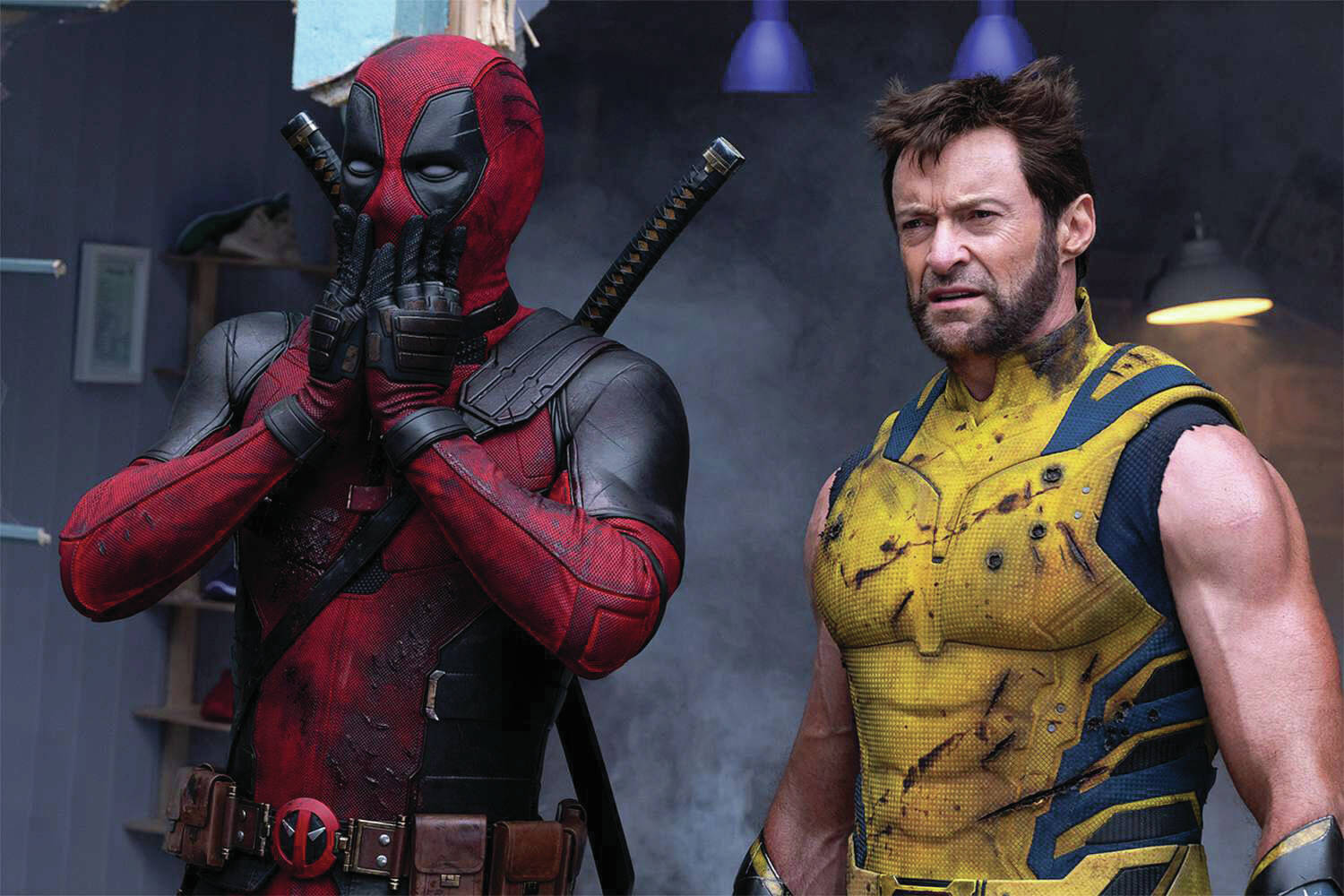The “Deadpool” films are crass, bloody and often juvenile. The films also have a solid emotional core and a sense of satire borne of a love for comic book movies that make them something more than the sum of their parts.
This weekend’s “Deadpool & Wolverine” — the third installment in the series but the first for the character as part of the Marvel Cinematic Universe — continues in that spirit while offering a good and fun addition to the Marvel canon.
It’s a bizarre love letter to an era of superhero cinema that probably was better left forgotten. It’s also a metatextual film about capitalist movie studios eating one another in a way that I can see general audiences struggling with.
The film’s plot is driven — oddly literally in its text — by the Walt Disney Company’s late 2010s purchase of 20th Century Fox.
Fox created its own superhero film universe beginning in 2000 with “X-Men.” The universe includes the previous “Fantastic Four” films, the 2003 “Daredevil” and, of course, the first two “Deadpool” movies. Now that Deadpool and the X-Men are under the Disney banner, that universe has ended.
Ryan Reynold’s Wade Wilson, the Deadpool of that now defunct universe, is approached by the Time Variance Authority — time police likely unfamiliar to moviegoers who missed the very good 2021 Disney+ streaming series “Loki.” The TVA tells Wilson that he’s getting a promotion to the Marvel Cinematic Universe, the series of films that includes “The Avengers,” “Thor” and “Captain America,” but that his universe is already on the way out because of apocalyptic-sounding technobabble.
What follows is a much more genuine and meaningful film than its conceit might imply. Wilson fights to save his family and friends from being disappeared, teaming up with a multiverse variant of Hugh Jackman’s iconic Wolverine, who canonically is not the same one who got a great ending in 2017’s “Logan.”
“Deadpool & Wolverine” is a film about misfits finding place, family and purpose. It’s driven by great performances from its leads — especially Jackman, who puts in a tortured and angry turn as a Wolverine who didn’t rise to become a hero.
The cast is rounded out by silly and often-gratuitous cameos that left me entirely thrilled.
The film pokes at the concept and history of the comic book movie in a way that’s not unlike the previous films, but that is made much funnier by its involvement in the Marvel Cinematic Universe. For example, Deadpool says there are new rules against the use of illicit drugs allegedly passed down by Marvel Studios President Kevin Feige.
The film also calls on a deeper-than-anticipated history of Marvel movies, including some bizarre references to films that were never even made.
“Deadpool & Wolverine” is like candy. This film has some serious stumbles — it feels even more like a corporate product than most MCU flicks, and it certainly can be a little grating as its two-hour runtime unfolds.
At the same time, it’s also wholly charming, surprisingly emotional and has a certain care for this sprawling universe of films that I share.
For moviegoers looking to the Marvel banner for reliable summertime entertainment, “Deadpool & Wolverine” will certainly deliver, though it’s important to remember that like the first two, this movie is rated R by the Motion Picture Association and is in that respect starkly different from the other films it directly connects to.
“Deadpool & Wolverine” will be playing this weekend at the Kenai Cinema and Orca Theater. Check catheaters.com or orcatheater.com for showtimes and tickets.
Reach reporter Jake Dye at jacob.dye@peninsulaclarion.com.

